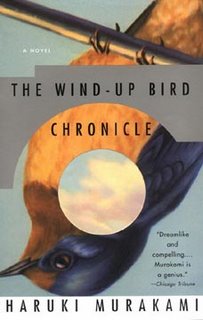by A.S. Byatt

Two novellas are found in this book, “Morpho Eugenia” (what the film Angels & Insects is adapted from) and “The Conjugial Angel”. I sought this out for the former, but frankly, couldn’t get through the latter, despite its cool subject matter: a motley circle of mediums and what they discover in the course of their semi-regular séances.
I’m not an A.S. Byatt fan, as this is the first book I’ve read of hers. But I do have a romantic fondness for 19th century natural science, the era that spawned Charles Darwin, so I naturally sought this work out. And it really delivered what I was hankering for. Byatt is really masterful at what she does, recreating the culture, language, aethetics and mindset of the Victorian period. There are beautiful passages detailing how the protagonist, an English naturalist, is esconced in the categorization of his benefactor’s animal and plant collection, his explorations and discoveries when he takes to long walks in the English countryside:
"His journal was for the first time alive with a purposeful happiness. He began also to collect insects, and was amazed to discover how many hundreds of species of beetle existed in a few square miles of rough moorland. He haunted the slaughterhouse, making notes on where the blowflies preferred to lay their eggs, how the maggots moved and chewed, the swarming, the pullulation, a mass of mess moved by an ordering principle. The world looked different, and larger, and brighter, not water-colour washes of green and blue and grey, but a dazzling pattern of fine lines and dizzying pinpoints, jet-black, striped and spotted crimson, iridescent emerald, sloppy caramel, slime-silver."
The story was also excellent, as I was surprised to find multiple complex and interesting themes and subplots woven into this dense, well-crafted 200 –page novella. Byatt’s obviously a big fan of Darwin, and she doesn’t disappoint in how she capably manages to integrate his evolutionary theories into, yes, a Victorian bodice-ripper. "Morpho Eugenia" deals with the Victorian obsession with Darwinian theories of breeding and sexuality, the parallels between insect and human society, the capture and taming of nature, and the age-old philosophical debate between religion and science. Heavy themes indeed, but hardly tedious at all. What distinguishes this story for me, is that these themes still ring true today, particularly the rift between those who believe in the comforting solace of divine design and those who understand and accept the pandora’s box of natural selection.
The character that portrays the religious side is Harald Alabaster, who’s struggling to write his magnum opus, “the kind of impossible book everyone now is trying to write. A book which shall demonstrate – with some kind of intellectual respectability – that is not impossible that the world is the work of a Creator, a Designer.” Alabaster is an intelligent, even wise, old man who once had his own radical views of evolution: “If I were a young man now, a young man such as you, I would be compelled towards atheistic materialism by the sheer beauty, the intricacy, of the arguments of Mr Darwin…” But now in his twilight years, he feels a desperate need to find some kind of meaning.
On the other hand, the protagonist, William Adamson, is a young naturalist who has accepted a creator-less universe. At Alabaster’s request, he’s invited into his study to read his drafts and play the devil’s advocate. Because Alabaster is also Williams’ benefactor, the naturalist has to bite his tongue at times:
William sat down in his father-in-law’s chair and tried to make sense of it, with mounting irritation. It was a new rehearsal of old arguments, some of which Harald had already, in conversation, rejected as untenable.
“… It may be an emotional deficiency in myself, Sir, that I cannot feel the strength of the argument. I have been much changed by the pattern of my life, of my work. My own father was very much in the image of a terribly Judge, who preached rivers of blood and destruction, and whose own profession was bloody too. And then the vast disorder – the indifference to human scale and preoccupations – in the Amazon – I have not been left with a propensity to find kindness in the face of things.”
Ah, the stuff of genius!


